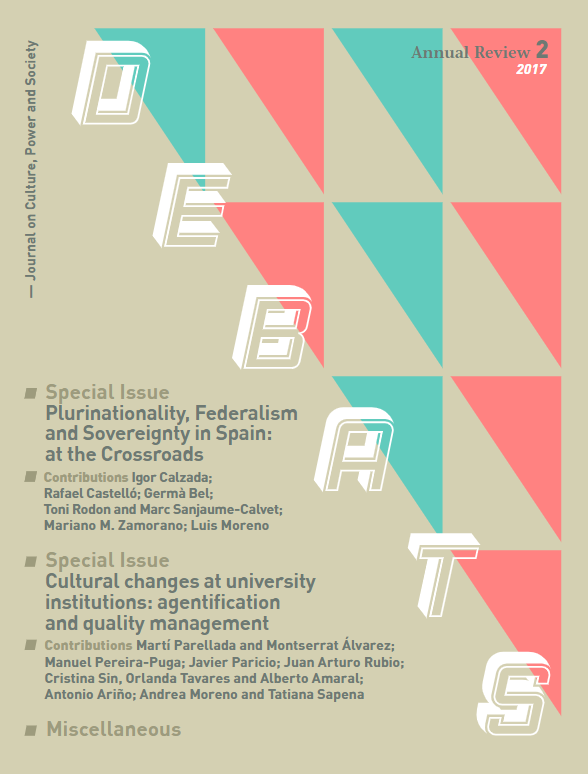Human resources in the global higher education market: the presence of foreign professors in Spanish universities
Resumen
Despite the existence of a global higher education market in which universities compete to attract talented academics from all over the world, most higher education institutions hire very few foreign researchers. Indeed, in Spain, only 1 in 40 academics are from abroad. This article focuses the Spanish case in order to deepen our understanding of the factors affecting the internationalisation of academic staff in the higher education sector. The analysis is based on data from the European Register of Tertiary Education Institutions and Spanish Higher Education Statistics data, collected by Spain’s National Statistics Office. The main results of this exploratory analysis show that there are differences between Spanish regions in terms of the proportion of foreign staff they hire. Moreover, at the institutional level, the most internationalised universities are relatively new institutions, and most of them are located in Catalonia. The political and economic framework in Spain discourages the hiring of international academics. However, in this context, two important insights should be highlighted: On the one hand, the differences between Catalonia and the rest of the Spanish autonomous communities show that sub‑national policies may have a strong impact on internationalisation processes in decentralised countries like Spain; on the other hand, divergence between universities shows the importance of the strategic behaviour of actors facing environmental pressures.Descargas
Descargas
Publicado
Cómo citar
Número
Sección
Licencia
Sin perjuicio de lo dispuesto en el artículo 52 de la Ley 22/1987 de 11 de noviembre de Propiedad Intelectual, BOE del 17 de noviembre de 1987, y conforme al mismo, los autores o autoras ceden a título gratuito sus derechos de edición, publicación, distribución y venta sobre el artículo, para que sea publicado en Debats. Revista de cultura, poder y sociedad.
Debats. Revista de cultura, poder y sociedad se publica bajo el sistema de licencias Creative Commons según la modalidad «Reconocimiento - NoComercial (by-nc): Se permite la generación de obras derivadas siempre que no se haga un uso comercial. Tampoco se puede utilizar la obra original con finalidades comerciales».
Así, cuando el autor o autora envía su colaboración, acepta explícitamente esta cesión de derechos de edición y de publicación. Igualmente autoriza a Debats. Revista de cultura, poder y sociedad, la inclusión de su trabajo en un fascículo de la revista para que se pueda distribuir y vender.











